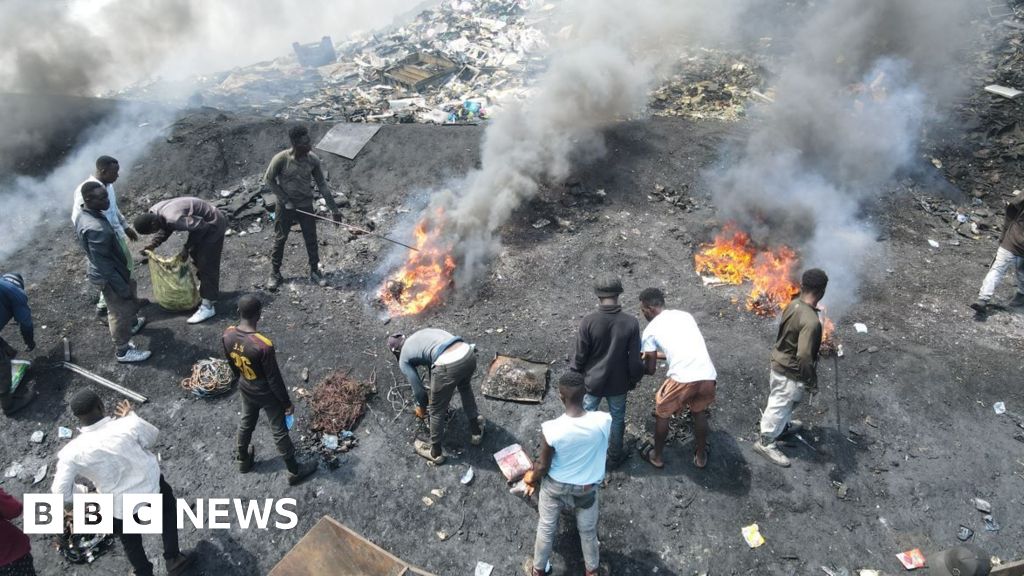Nigeria's Struggles with Fossil Fuel Dependency, E-Waste Pollution, and Coastal Erosion: A Triple Threat
Nigeria grapples with financial strain from cut petrol subsidies, toxic e-waste disposal, and severe climate change impacts on coastal communities.
Subscribe to unlock this story
We really don't like cutting you off, but you've reached your monthly limit. At just $5/month, subscriptions are how we keep this project going. Start your free 7-day trial today!
Get StartedHave an account? Sign in
Overview
Nigeria faces multiple crises: economic turmoil following the removal of petrol subsidies driving transport costs up, toxic air pollution from e-waste burning in Ghana, and climate change causing severe coastal erosion impacting communities in Lagos. As citizens adapt to a resource-scarce environment, reliance on natural gas rises, hazardous e-waste trade continues, and vulnerable coastal populations contend with flooding and loss of land, homes and livelihood. Government measures and international treaties are called upon to alleviate these challenges.
Report issue

Read both sides in 5 minutes each day
Analysis
Analysis unavailable for this viewpoint.
Articles (3)
Center (2)
History
- This story does not have any previous versions.


